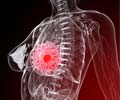Highlights
- 60,000 Americans are diagnosed with Parkinson’s disease each year
- Men are one and a half times more likely to have Parkinson’s disease than women
- PINK1 gene mutation ups Parkinson’s disease risk
Genetic studies had suggested that a single mutated PINK1 allele might confer an outsized risk of the developing the disease. It took a "very effective synergetic" effort of clinical, structural and cell biologists, along with geneticists and data from thousands of affected patients, to show how it led to earlier disease development, Dr. Springer says. "It took a real international collaboration to solve this puzzle," he says.
Role of PINK1 Gene
PINK1 works along with PARKIN gene to ensure that mitochondria (cell’s power plant) in neurons remain healthy. Neurodegenerative disorders are characterized by disruption in energy production in neurons.
Quality Control System of Mitochondria
Protein marker produced during the process is labeled to the damaged mitochondria that need to be destroyed.
Dr. Springer says, “Specific mutation (p.G411S) in one copy of PINK1 substantially impairs this same pathway by inhibiting the protein produced from other healthy PINK1 allele. This rare mutation has an outsized effect, and the remaining levels of functional PINK1 protein are not enough to cope with damaged mitochondria,"
The study had started with genetic findings when one of the lead authors, Andreas Puschmann, M.D., Ph.D., of the Department of Neurology, Sk책ne University Hospital, Sweden, was a visiting scientist at Mayo Clinic. Additional structural and cell biological data then provided the sought-after mechanism to explain the observed phenomenon.
The findings could have implications for other neurodegenerative disorders. Study published in Brain
Source-Medindia















